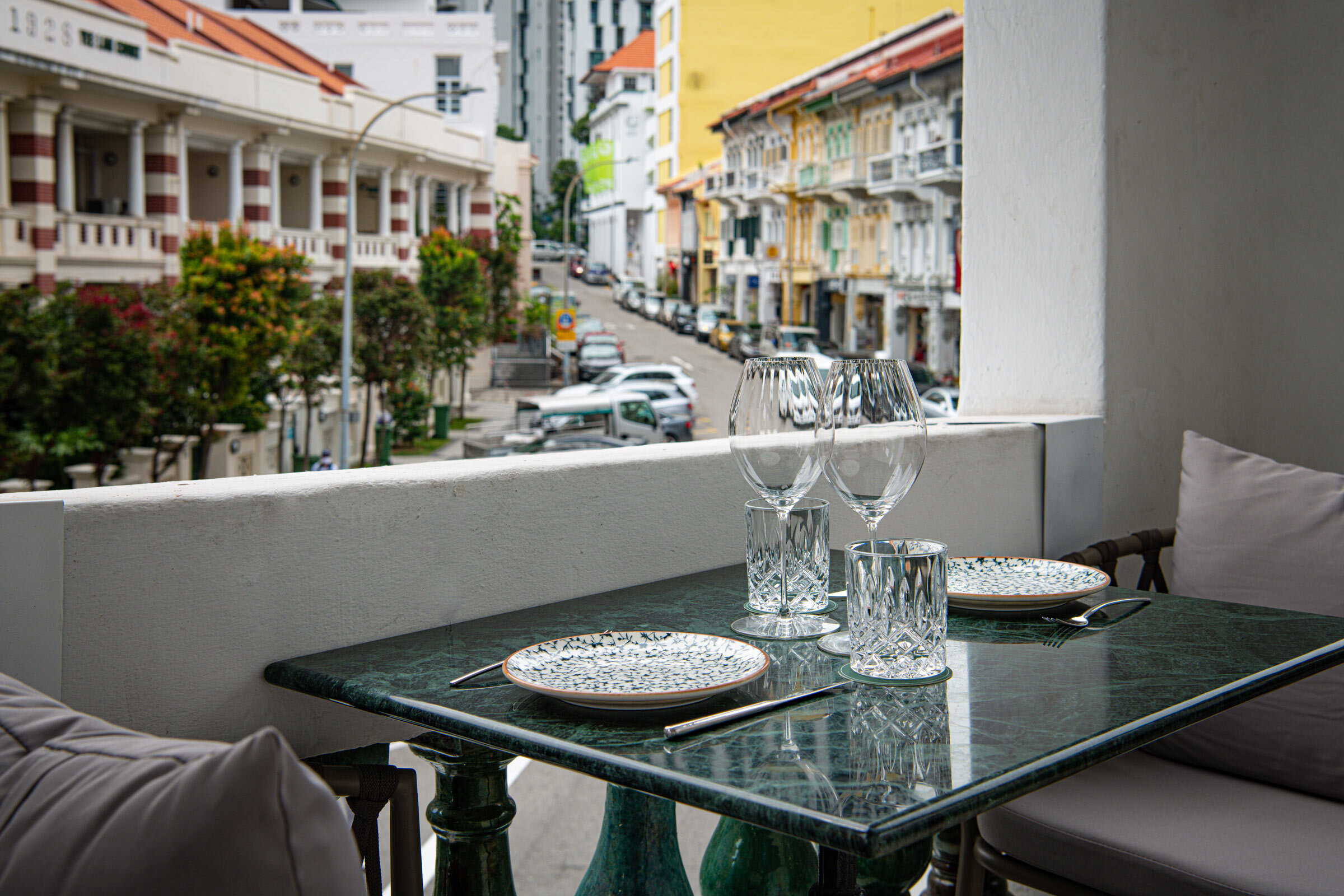Brasserie Clos Pasoh Opens on Bukit Pasoh Road
Designed by studio hba, newly opened brasserie Clos Pasoh reflects both Singaporean and French sensibilities, with original elements of the heritage shophouse combining with tropical touches and plenty of greenery
In recent years, Singapore’s Bukit Pasoh Road has come into its own as a lifestyle destination, with a string of new establishments including the private members’ club Straits Clan and Ginza-style bar Live Twice. Situated in an 1840s heritage building, contemporary French brasserie Clos Pasoh has now joined the line-up.
Bukit Pasoh Road earned the nickname ‘the street of the clans’ because it was the location of many clan associations in the early 1900s. The area’s storied past and the fact that brasseries are traditionally rooted in community made it a fitting choice of location for Clos Pasoh’s founder Jean-Christophe Cadoret and chef Louis Pacquelin.
The fruit of Cadoret and Pacquelin’s vision is a charming and inviting restaurant that exudes a sensitivity to its cultural context. studio hba — a division of hospitality design veterans HBA/Hirsch Bedner Associates — took inspiration from both French and Singaporean sensibilities, creating an interplay of materials, textures and colours — think brass fixtures tempered by velvet upholstery and silk wallpaper, and green accents counteracted by mustard and walnut hues.
As one enters the restaurant, the focal point is undoubtedly the spine of lush foliage, the greenery a clear expression of Cadoret’s affection for Singapore’s verdant landscape. There are also numerous design references to the city-state’s vernacular, from the breezeblocks and rattan dining chairs to tropical wallpaper and traditional round tables like those found in old-school coffeeshops.
Even though it’s a newly opened restaurant, Clos Pasoh feels homely and lived in. ‘We wanted guests to feel welcomed and relaxed from the onset, and have thought deeply about how we could make this happen,’ says studio hba principal Joris Angevaare. In an effort to create a cosy atmosphere, Angevaare retained the original flooring and exposed timber beams and sourced vintage carpets to complete the look.
Hidden in the middle of these exposed beams are nondescript acoustic panels made of polyethylene terephthalate (PET) by Singapore brand Enocoustic. The aural quality of the space was an integral design detail, given the restaurant’s aim of bringing people together. A medley of other elements also tempers the chatter: fabric panels, velvet-covered banquette seats and considered placement of plants and carpets.
In all, this roster of deft design considerations comes together to create a deep sense of place in an evocative space that is deeply connected to its neighbourhood.
Text / Joseph Koh
Images / Courtesy of Clos Pasoh


















